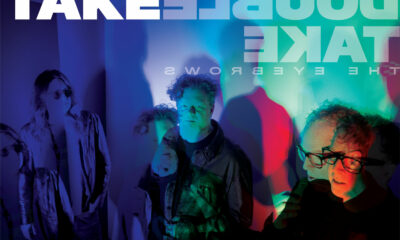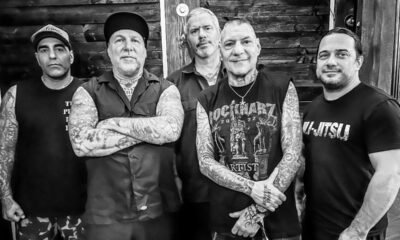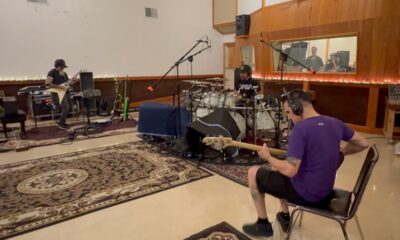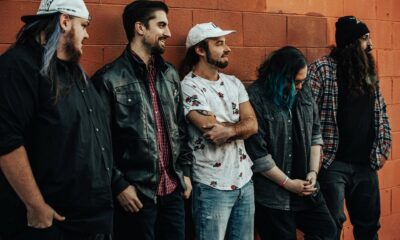Interviews
FRANZ STAHL Speaks About the Southern Lord Reissue of ‘No More Censorship’ by Punk Legends SCREAM
Scream interview with Franz Stahl on the Southern Lord reissue of No More Censorship, the Washington, D.C. punk legends’ fourth album, Dave Grohl, 606 Studios, Mastodon and keeping punk alive!
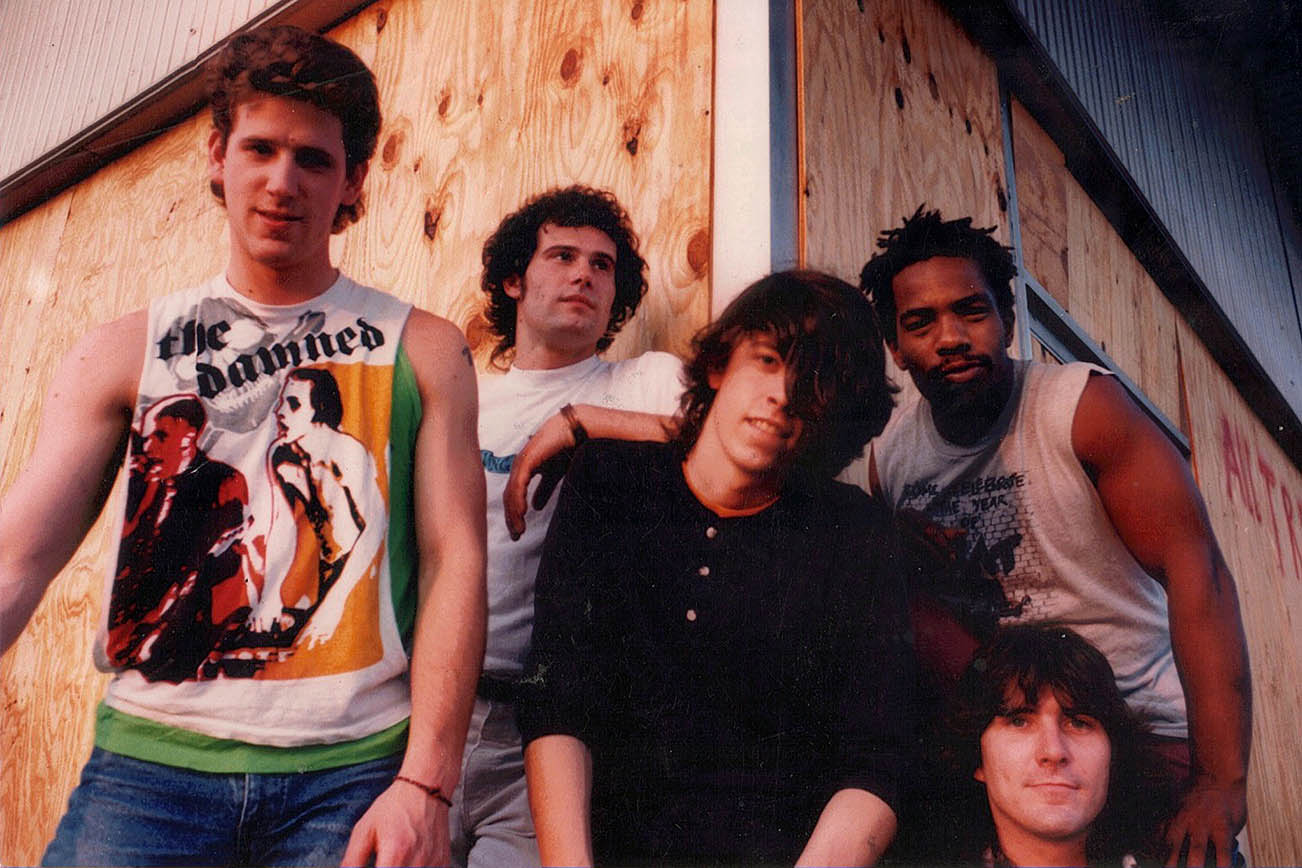
It’s funny what time will do. It can make popular culture references irrelevant. It can turn fads into time capsules, reduce legacies to dust, and alter the memory of how we lived. In this sense, entropy always wins; no one and nothing is safe. More species have birthed, grown, lived, and died than those that survive today. On the flip side, time allows things to mature into the best version of themselves. Sometimes, all it takes is a little time to give something a new angle or a new audience who will appreciate its true value. This can happen for food, it can happen for ideas, and it happens all the time for music.
It could be argued that time has not been kind to Washington, D.C. punk rock band Scream. Thirty years ago, Scream were a well-regarded hardcore act whose name was on the lips of anyone at their local hardcore punk show in North America and abroad. They had forged a path that had seen them tour the country and overseas, release not one but three full-length records through Dischord – arguably the most punk record label to this day – and have a massive impact on the scene in general on par with Bad Brains and Black Flag.
Today, that influence is strangely overlooked. The reasons for this are up to interpretation, but what remains undisputed are the landmark albums the band left behind. Thirty years ago, when No More Censorship was released, it was the first recording by the group that was not issued via Dischord. It was also a departure sonically from their earlier work, featuring a new drummer, and a developing interest in other genres and influences. While still focused on political and social commentary, the album also saw more melody and use of a wider range of sounds. This gained a new following while causing an inevitable schism with old fans who saw the deviation as being part of “that post-hardcore stuff”. Scream would go on to release one more disc, Fumble, posthumously, and have a series of reunion shows. No More Censorship remained an unsung entry in the band’s catalogue.
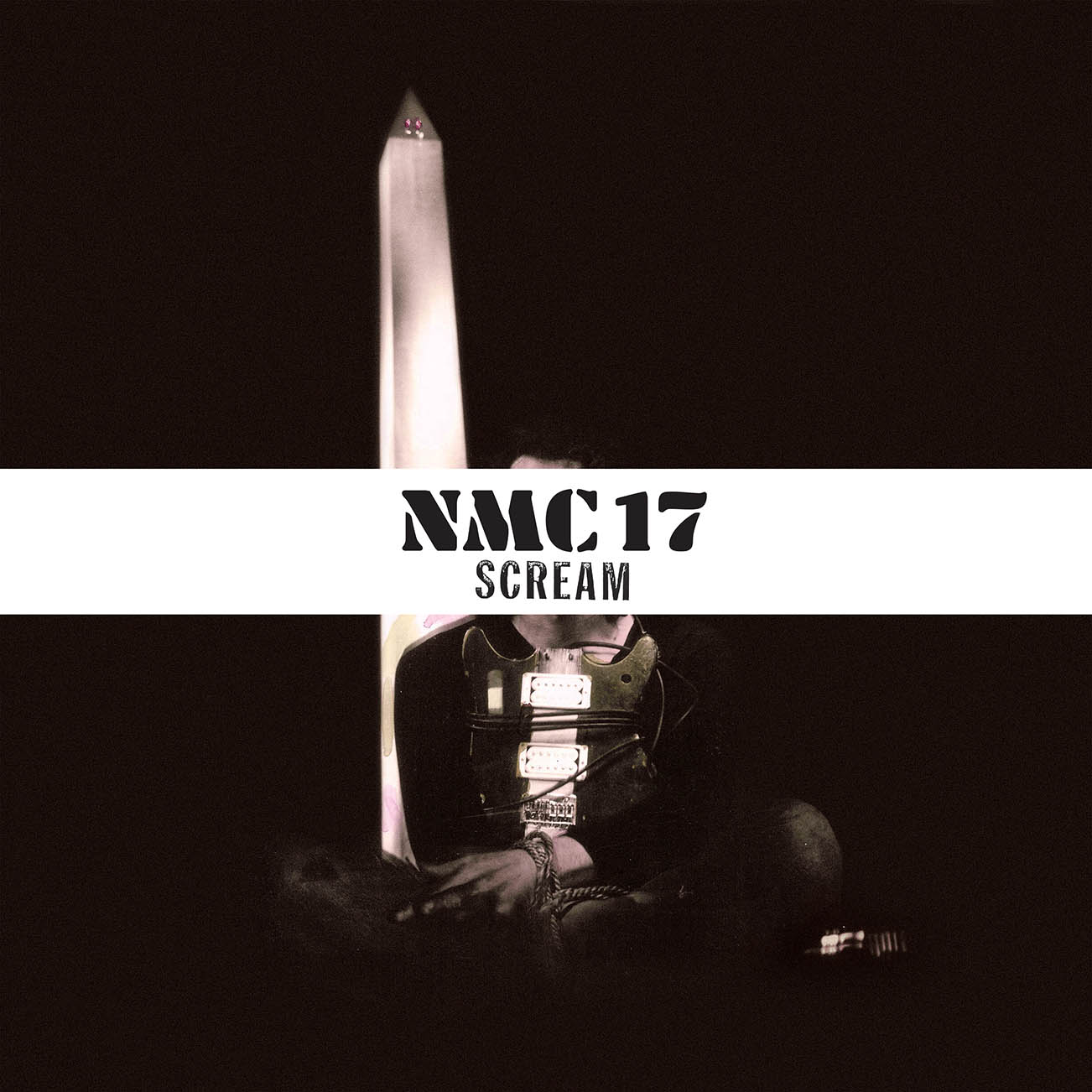
When the group parted ways over differences while out on the road in 1990, its members would go on to some noteworthy projects, to put it mildly. Scream’s last drummer, Dave Grohl, would play in Nirvana, and later, Foo Fighters. Franz Stahl also played in Foo Fighters between their second and third albums before parting ways. In recent years, he reunited Scream with his brother Peter Stahl, and have played a string of shows together with the full early lineup.
All throughout this time, the band’s influence was lost to those who chose to keep a record of its history. While acts like Minor Threat and Dead Kennedys were celebrated for their contribution to the shape of punk and hardcore in the ‘80s, Scream remained largely forgotten. And among their discography, No More Censorship remained a faded version of itself, the spurned entry in the band’s otherwise stellar career as punk heroes.
The original masters were found in recent years by photographer and friend of the group, Naomi Peterson, lying in the dust, who promptly passed the recordings to Peter Stahl, Scream’s vocalist. Peter entrusted the masters to his brother and guitarist, Franz. Over the past year, under Franz Stahl’s direction, and with input from the rest of the guys, No More Censorship had new life breathed into it. Re-mixed, re-mastered, and re-arranged at Grohl’s 606 Studios, it was released courtesy of Southern Lord (order now via the label in US/CA and Europe), available after 30 years. It now dons the title, NMC17, to signify its rebirth into the world.
Sometimes time gives us another chance… I got a chance to speak to Franz Stahl about the mix, the history, and the band’s enduring legacy.
The new mix is intense and really powerful. How long did the re-mixing process take for No More Censorship this time around? What is your favourite thing about getting to change the mix on the album? Have you always wanted to remix the album, were you unhappy with the original mix? Did you get any input from the guys on the remixing?
Franz Stahl: I would agree… the new mix does have more power and intensity, and I would attribute that to my desired approach, and the technical hands of 606’s main guy
The other aspect… is how I wanted it to sound and the process. Stripping away the prevalent reverbs while taking out any acoustic guitars, synths and mostly all the piano that was on the masters. Wanting to strip that away and bring it all more in your face, we also re-amped the bass, guitars and re-EQ’d their respective sounds along with the vocals. I think we achieved this, and yes, we had always been kind of unhappy how it turned out. Not song-wise, but mix-wise. Like I said… it just had that total bad 80s sound to it. My favorite part was finding things, hearing things on the masters that we had not heard before, and or had forgotten about, and above all making it sound like it should have. There was periodic input sparsely by my brother, and executive producer as we were finishing up weeks at a time, and more importantly Dave, towards the end, coming in and giving his help with not only the drums, but the overall mix.
Check out Scream with Dave Grohl live in 1988.
How did it come about that Naomi Peterson got a hold of the masters?
Stahl: Naomi had been working there and the company, RAS was going through some changes and dissolving. Put simply, they were trashing a lot of their catalogues, and the warehouse itself. She happened to find it in the trash bin and gave Pete a call to see if we wanted it. Hell yeah!
You’ve shared the stage with a number of acts in recent years that show an awareness of what’s been going on in heavy music, what are some of your favourite bands in the scene today?
Stahl: Jeez.. I listen to a lot of music, a lot of King Tubby, and just Dub in general right now. Heavy bands? Well, Scream, and my other band, DYS, have recently done some trips to Europe playing with a lot of cool bands. The most memorable was Mastodon in Spain at the Resurrection Festival. I knew of them but had never seen them live. Boy… they were great and even reminded me a little of an old fave band of ours, Voivod, in a way. The time changes and all. They were heavy.
What inspired the artwork for the album? Who did it? Why the Washington Monument?
Stahl: Well the inspiration for the vinyl artwork came from several discussions and ideas between my brother and I, and at Southern Lord Records. We wanted to keep the similar ideas, motivations and pictures that we had pulled from boxes of the original pressing, and moreover ones we had never used. Of course, we wanted [the record] as a re-issue, not to replicate the exact original release. The Monument pic was one of those that we found and had never been used. It was part of a photo session, and well, we are from that area and the Monument is the most recognizable icon of that area, aside from the White House. It’s known in our neck of the woods as The Eternal Klansman (sadly). The politics of the time are very much reflected in the lyrics, and of the artwork as intended.
The CD is another matter and an idea I had come up with after my introduction to the works and life of the Chinese activist [and] artist Ai Weiwei and the obvious correlation between the underlying themes of our record, and his personal life. As I wanted to make an updated version to our artwork these connections seemed perfect. [Weiwei] is a much maligned figure by the authorities as an artist, and activist in his home country of China. Constantly censored there, his passport taken away and quarantined for a long period at his home in China. He finally was given his passport back and now travels the world freely with his art installations, films and activist work and is known the world over. No More Censorship!
If you could choose a lineup to go on a Scream reunion tour of any band alive or dead who would you go for and why?
Stahl: At this point any… as long as Scream could [do a] reunion with all the original members of NMC I’m happy to play with anyone!! Alive or dead!
Listen to the entirety of NMC17 right here, starting with the single “God Squad”.
You got to use Dave Grohl’s studio to remix the album. Has Dave listened to the new mix? Does he like it better than the original? How does the rest of the band feel about the final product?
Stahl: Everybody loves how the record came out and like it more this go around, and yes… even Dave.
Do you feel that punk is any less politically or socially powerful like it was in the ‘80s? Or do you feel that the medium has changed the entire music scene?
Stahl: Well, that’s a long question and opinions will obviously vary. Mine? I don’t think it’s as powerful, or at least, it doesn’t feel so that way to me anymore. Punk? Punk is now hanging on a t-shirt rack at Target. It was socially powerful, and in that pushed it into the mainstream and what it is today. It’s now a genre… a tag… a way to market to the intended. Politically? Not since Rage Against The Machine had politics been so infused into alt-rock? punk rock? and scared people, call it what you will.
Now it’s half-assed lip service by mainstream bands, though I wouldn’t say it has left the mouths of many a lyricist… their personal politics still in words. The medium has changed the landscape of what you hear and listen to today. There are still scenes, bands, shows and the like. It’s all still out there and there are a lot of cool bands doing some interesting stuff, but what IS different is how… we did things back in the day. It was all DIY across the board. A lot less of that now.
“God Squad” is a fucking anthem and the message seems more relevant today somehow. That riff alone deserves its own place in the pantheon of punk. What happened to bring the band to an end in 1990?
Stahl: Believe it or not…there is a lot of dysfunction in bands, and that dysfunction finally brought the band to an end, and sadly so. We were out on the road working our latest record, and last, Fumble, one of my favorite to date, and that dysfunction finally came to a head for the last time. We split up while out on the road.
Looking back, if you had to rank Scream’s albums based on how important you think they were, where would you place No More Censorship in that list? What would top that list? What about if the list was albums you were most proud of? If there was anything that you could do differently during your time in Scream, is there anything specific that you wish you could have done differently?
Stahl: Hmm… Well, I just can’t and don’t think of it in those terms. Anybody’s first record is landmark to them and special as at the time you’d never thought you’d ever even get out of the basement let alone tour the States, Europe or even the local Rock club up the street, and on top of that have a label ask you to do a record for them. That was quite a highlight for us tremendously, considering the time, where we came from and what we were up against. With that…all our records were very important to us, and to have been fortunate to continue to do them.
Check out Scream performing in Italy back in 1987. Yes, with Dave Grohl.
I read somewhere that you lived in a punk house in Alexandria. Is that true? If so, how long did you live there? How much of that would you say had an impact on your music and writing? What are some of your favourite memories from that place? What are some of your least favourite?
Stahl: There were 6 Scream houses in all, as everybody called them. My brother and I as occupants, myself for 5 of them along with a host of other roomies throughout each inception. It’s where it all started, the basements where the band came to be and the breeding ground for what we would become. Those days were the best! Scream houses became infamous! The early Scream houses [are] where we started, and jamming around in the basement basically doing covers of obscure garage rock stuff like The Seeds, local bands like The Razz and other new bands to us like The Dickies, The Police, Buzzcocks, The Jam and little forays in to our own originals.
We started having these keg parties on the weekends and it would be mostly made up of our friends and kids from our high school. Some kids would go crazy, but mostly they stood there not knowing what to make of this music they were hearing and the way some people were dancing to it, but hell… there was nothing else to do in our hood, so everyone showed up and this was before we fell into the punk scene downtown and actually doing shows there. It became a thing and the parties started getting crazier, and the people started coming from further and further out as word got out about the parties at this Scream house. The band progressed as we started doing shows in the D.C scene and we befriended many a punk rocker. By the time we were on to our 2nd Scream house it became all too much.
Some of the D.C. punks would come out to these parties on the weekends and now you had those mixing with Jocks, and Rockers, and just whomever from areas spread wide. The music was wild, the crowds were wild, and fueled by all sorts of substances and alcohol. Like I said, most of this was new to a lot of kids and they did not know how to deal with all these punks, the music…so shit got out of hand though mainly it was the lunk-headed jocks that started most of the shit, but we would defend it. Cops started showing up all the time and it all became a little too much to deal with. We put an end to the parties, but we continued to have Scream houses, and practice in the basement. Moreover, Scream had finally done its first record with Dischord and were now part of the of the scene doing shows downtown, and going on tours throughout the U.S. and Europe.
What do you think needs to be remembered from that period of time in the 80s, from hardcore? What could kids today stand to remember or reflect on to gain a more insightful view of the impact that was made at that time and how they can change the world around them today?
Stahl: Oh man… Well, I think nothing has been lost in regard to its impact, and its importance and its role as probably the last youth-oriented, generational musical movement. It’s certainly not lost to those who actually lived through it. Today there are many facets of the current scenes that reflect and embody that period of the 80s. There is great renewed interest in those days and a testament to that is all these festivals, and tour shows comprised of all these old crusty punks like us. The old guys are still out there doing it to a certain extent and that’s awesome.
This too provides insight, in a way, to these kids seeing these bands for the first time. It’s a wonderful period where you’re mixing the old school with the new school and they can see and hear what we have, had to say and to turn that into their own thing, and/or gain knowledge and understanding of what it all stood for and apply that to their own thing and the scenes today. Changing the world around them requires action and music is a great motivator.
This is Scream live at the Chevy Chase Country Club in Maryland in 1986.
If you could broadcast one person’s viewpoint to everyone living in America today, who would it be and why? What group of people would you like everyone in America to focus on?
Stahl: There are many forward and progressive thinkers out there today, and I’m not gonna sit here and tell people who they should and shouldn’t listen to, as I don’t have that right, but from my early days in the punk scene… at its core was this social cohesion that ran through it, doing it all together, and for the greater good of the scene. This can also be a more worldly view as we strive to do the best and care for, and provide for, and be considerate of all of us here on earth. Sadly, seems we’ve become more divisive pitting one against the other to make you subscribe to one thought or another. These are not good times. Liberalism! Conservatism! How about CONSIDERATISIM!! Hahahaha! LOVISIM!!
Do you think hardcore was ever “dangerous”? Is it more or less dangerous today? Should it be?
Stahl: There was a time when hardcore shows were up in the air. What I mean is anything could happen, and more than not, it did. You felt it… sensed it! It happened for all the stupid reasons and the right reasons. These were aggressive youthful get-togethers, the music was aggressive and so on, but no, the music itself was not dangerous, and I don’t think it should be dangerous. It should be about going out to hear some cool music and expressing yourself in any way you feel like it, as long as you’re not trying to hurt one another.
How much of what Scream had to say in the 80s is relevant today? Is there any particular theme that you would say is the most important that you were talking about back then?
Stahl: Sadly, what Scream spoke (or shouted about), wrote, and participated in then is still relevant today. To us, it was all important. We seem to be in a much scarier place or time now with much more illegalities going on… The world has shrunk around us and a handful of powers control it all. There is more poverty, death, injustice, war, and inequality than it seems [than] ever before. Most of what we sang about, along with many another political band like us of that time, or at least the themes are just as relevant now as they were then.
How has hardcore made your life better? How has it made it worse?
Stahl: Coming up in the scene, being a part of and participating in that period made my life tremendously better with what it provided me, all our worldly trips that were highly educational and eye-opening. The power this music had on me that is still found in me and how I go through daily life. It’s really kind of hard to put into words its impact on me. The friends we made, and still have. All… all of us and what we did is still out there right in front of us through… social media, whats on your turntable… what’s in books and movies. It’s probably the single greatest, and most important time of my life at my age then. And it continues to shake my hand! Cheers!
-

 Alternative/Rock14 hours ago
Alternative/Rock14 hours agoThe V13 Fix #010 w/ High on Fire, NOFX, My Dying Bride and more
-

 Hardcore/Punk1 week ago
Hardcore/Punk1 week agoHastings Beat Punks Kid Kapichi Vent Their Frustrations at Leeds Beckett University [Photos]
-

 Culture1 week ago
Culture1 week agoCirque Du Soleil OVO Takes Leeds Fans on a Unique, Unforgettable Journey [Photos]
-

 Alternative/Rock6 days ago
Alternative/Rock6 days agoA Rejuvenated Dream State are ‘Still Dreaming’ as They Bounce Into Manchester YES [Photos]
-

 Music2 days ago
Music2 days agoReclusive Producer Stumbleine Premieres Beat-Driven New Single “Cinderhaze”
-
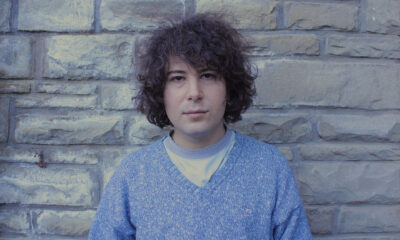
 Indie1 week ago
Indie1 week agoMichele Ducci Premieres Bouncy New Single “You Lay the Path by Walking on it”
-

 Culture2 days ago
Culture2 days agoDan Carter & George Miller Chat Foodinati Live, Heavy Metal Charities and Pre-Gig Meals
-

 Alternative/Rock1 week ago
Alternative/Rock1 week agoWilliam Edward Thompson Premieres His Stripped-Down “Sleep Test” Music Video

